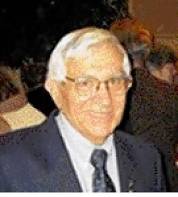John Paul Abranches, who successfully spurred Portugal to recognize the heroics of his Portuguese diplomat father, who saved 30,000 people during World War II, died on Feb. 5 in Antioch of complications from Alzheimer’s disease. He was 78.
A resident of the Bay Area for 50 years, Mr. Abranches was a tireless advocate for the memory of Aristides de Sousa Mendes, who – as Portugal’s consul general in Bordeaux, France – ignored his government’s orders and issued transit visas to ”undesirables” fleeing the Nazis.
De Sousa Mendes is credited with saving 10,000 European Jews and 20,000 other European nationals – a defiance that prompted Portuguese dictator Antonio Salazar to jettison de Sousa Mendes from the diplomatic corps, deny his pension, and black out de Sousa Mendes’ actions from official Portuguese records.
De Sousa Mendes, who is occasionally described as ”the Portuguese Schindler,” died in poverty in 1954.
Mr. Abranches – along with his siblings, relatives and others who learned about de Sousa Mendes’ life – organized petitions to Portugal’s government and spoke to groups around the United States in a campaign to highlight de Sousa Mendes’ achievements, and to force Portugal to redress its treatment of him.
In 1987 – 17 years after Salazar’s death – Portugal’s government apologized for its behavior, and in subsequent years restored de Sousa Mendes’ name to the ranks of diplomat, awarded him Portugal’s highest civilian medal, and held a state dinner in his honor – an event that Mr. Abranches attended outside of Lisbon in 1995.
Mr. Abranches was himself a victim of Portugal’s old campaign to discredit his father. In his early teenage years, while still in Portugal, teachers would ask Mr. Abranches if he were the son of Aristides de Sousa Mendes. When he confirmed the connection, ”He’d be failed. It was that dramatic,” said Sheila Abranches, one of Mr. Abranches’ four children. ”He pretty much had to (move) from Portugal.”
Mr. Abranches immigrated to the United States in 1950, he joined the Army, and later moved to the Bay Area, where he worked as an architectural draftsman. Like his father (who was Portugal’s consul general in San Francisco in the 1920s), Mr. Abranches made it his life’s mission to aid strangers. He helped other immigrants to the Bay Area learn English and gain housing, and was head of the Vietnamese Refugee Committee in Dublin, where he lived for most of his Bay Area years. Mr. Abranches was an active member of Dublin’s St. Raymond’s Catholic Church, where a memorial service was held Feb. 11.
As the story of his father became better known – through the 2000 documentary ”Diplomats for the Damned,” and such events as the U.N. exhibit in 2000 that honored de Sousa Mendes and other ”Righteous Diplomats” – Mr. Abranches took comfort knowing his activism made a difference.
Sheila Abranches will continue to speak publicly about de Sousa Mendes.
So will Joao Crisostomo, a friend of Mr. Abranches who is vice president of the International Raoul Wallenberg Foundation. ”We need to let young people know about the heroes of the past,” Crisostomo said. ”They will be ignored if they are not kept being remembered. It’s a job that will never stop.”
Mr. Abranches is survived by his four children – Sheila of Queens, N.Y., Paul Abranches of Newman (Stanislaus County), Peter Abranches of Antioch, and Eileen Garehine of Oakley. He is also survived by his wife, Joan, and sisters Teresinha and Marie Rose.
E-mail Jonathan Curiel at jcuriel@sfchronicle.com

